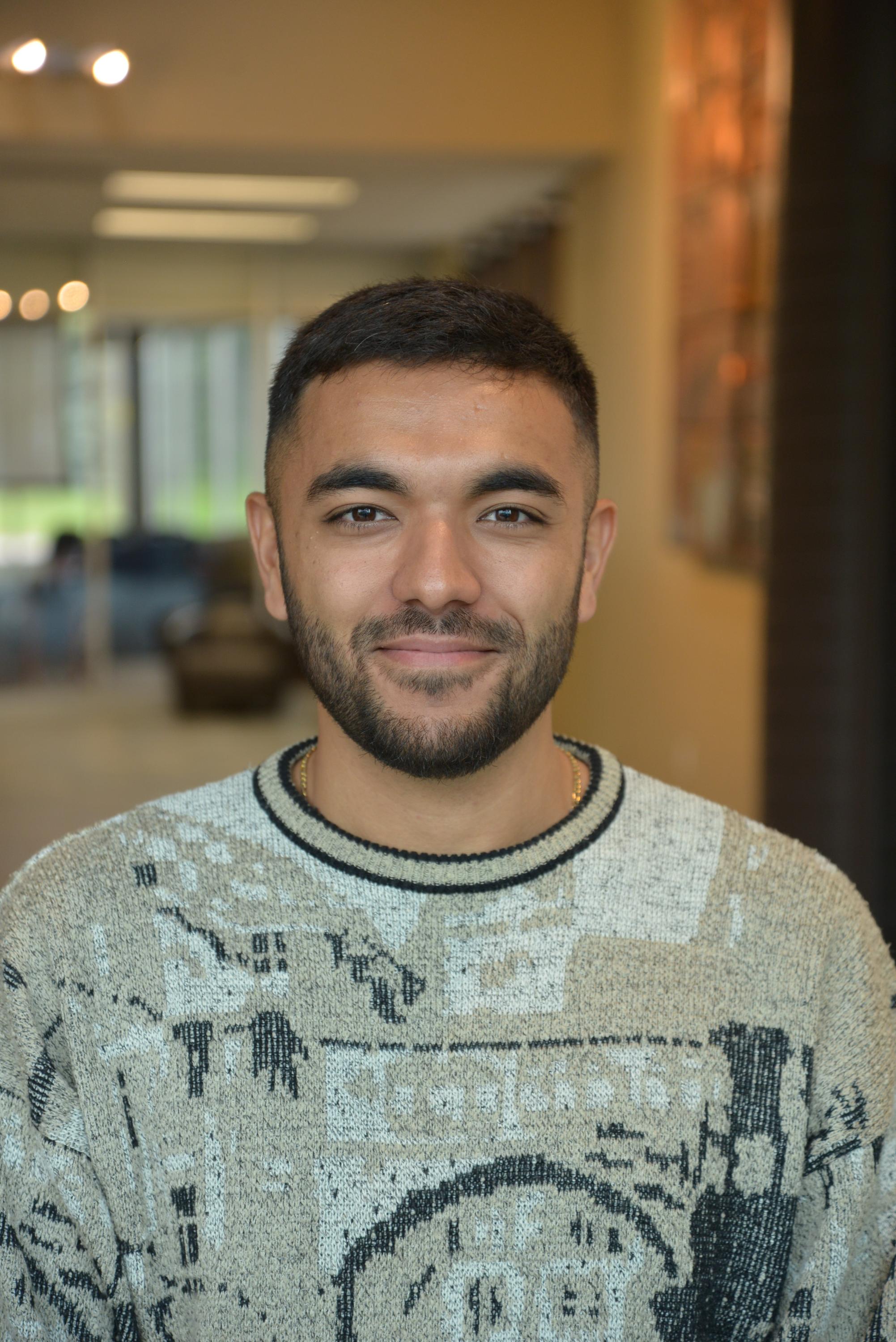
Originally from Afghanistan, conflict has always played a role in Obaid’s life, MPACS has given him the opportunity to explore this further.
After completing his Bachelors of Arts at the University of Toronto with a double degree in political science and sociology, he knew he wanted to continue his study but wasn’t sure where. After looking around he discovered the MPACS program here at UWaterloo. He was fascinated by this “one of a kind program” which would allow him to study different kinds of conflict at different levels in society, and how to actually bring some sense of peace to these situations. Having never explicitly studied PACS material prior, Obaid immediately saw the underlying themes in his undergrad which made MPACS a natural progression.
Obaid previously served as the President of the MPACS society, he works to collaborate with other clubs on campus to bring communities together and collaborate on events. Outside of the classroom, he is working with the Peel Poverty Reduction committee. The committee is comprised of nineteen members and works to advance policy to reduce poverty and lift the voices of those affected by poverty.
As part of the MPACS program, Obaid completed an Internship over the 2019 summer at the Wilkinson Shelter, a Salvation Amy Men’s shelter in Brampton, Ontario. Here he was working as a front line officer to a shelter which houses 110 men over the age of 26. The men stay for varying lengths of time from one night to over a decade. In this role Obaid worked to maintain the facility and act as the eyes and ears, looking out for any immediate needs of the men.
Whether it may be a towel, toothbrush, naloxone, it is our job to make sure we are present and ready to face any problems that may arise and keep the peace.
During his time there was constant conflict between the clients from personalities clashing, substance abuse, physical altercations, theft, and death.
I was exposed to a very real, very serious, darkness that lies within our society that often we are not aware of.
Obaid feel very privileged to have been hired by the Salvation Army after his placement and is excited to continue his work there.One piece of advice Obaid offers to prospective and current MPACS students is to:
talk with your cohort and as many people as you can. You can learn something from everyone, listen to their stories and experiences and learn from them.
In the future, Obaid hopes to become a police officer and see his MPACS degree as a stepping stone in preparing for this role. He hopes to take the knowledge, ideals, and values I am learning through MPACS and spread it through my work as a police officer, and how to mitigate conflict.
MPACS is giving me the skills I need to look at each individual conflict into context the big picture to understand why conflict is happening.